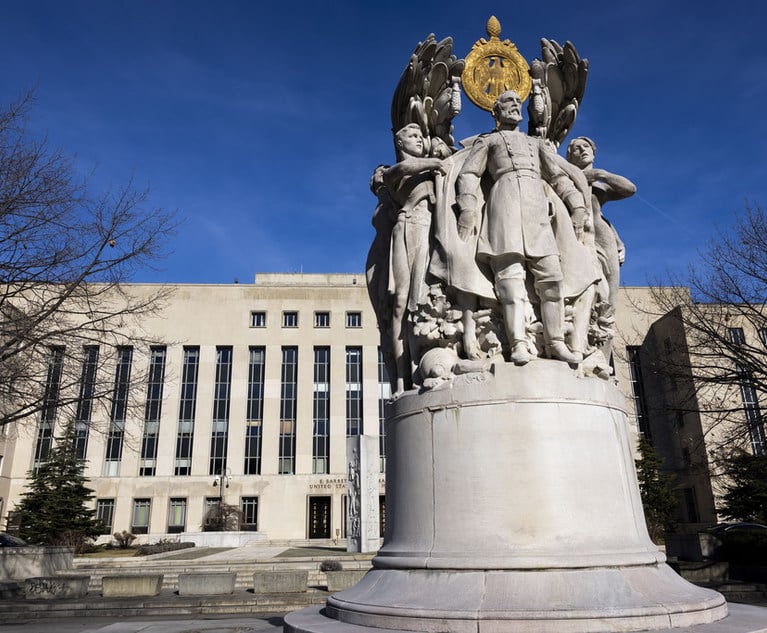 The E. Barrett Prettyman U.S. Courthouse, home of the U.S. District Court for the District of Columbia. Photo: Diego M. Radzinschi/ALM
The E. Barrett Prettyman U.S. Courthouse, home of the U.S. District Court for the District of Columbia. Photo: Diego M. Radzinschi/ALM
A federal judge on Wednesday heard oral arguments in the high-profile lawsuit brought by former NCUA Board Members Todd Harper and Tanya Otsuka, who alleged their removal by President Donald Trump in April violated federal law and the Constitution’s separation of powers.
Harper and Otsuka were both in the courtroom for Thursday's hearing.
Recommended For You
U.S. District Judge Amir H. Ali presided over the hearing in Harper et al. v. Scott et al., during which the plaintiffs’ attorney, Vincent Levy, argued that Congress intended to shield NCUA Board members from at-will removal when it restructured the agency in 1978. “There were express words in the pre-1978 statute that provided for service at the pleasure of the president,” Levy said. “Congress struck that provision, and that must mean something.”
Levy likened the NCUA to independent financial regulatory agencies like the Federal Reserve and FDIC, which, despite lacking explicit statutory protections, are widely considered insulated from political interference. “Every authority the government says is ‘too executive’ — the FDIC and Fed already do,” he said.
Government attorney Elisabeth Neylan countered that the NCUA performs “quintessential exercises of executive power” and that there is no clear statutory text restricting presidential removal. “Even if Congress intended such protections, it must say so unambiguously in the law,” Neylan stated.
Judge Ali pressed both sides on whether the NCUA’s structure and function resemble agencies with implied protections and questioned the practical consequences of politically motivated removals in financial regulation. Levy warned that politicizing the NCUA could destabilize markets and undermine confidence in credit unions’ oversight.
The case also raised questions about the appropriate remedy. Levy said reinstatement of Harper and Otsuka would be proper, while Neylan argued such action would be unconstitutional, asserting that courts lack the authority to interfere with presidential appointments.
Judge Ali took the matter under advisement and is expected to issue a written ruling soon.
© Touchpoint Markets, All Rights Reserved. Request academic re-use from www.copyright.com. All other uses, submit a request to [email protected]. For more inforrmation visit Asset & Logo Licensing.







